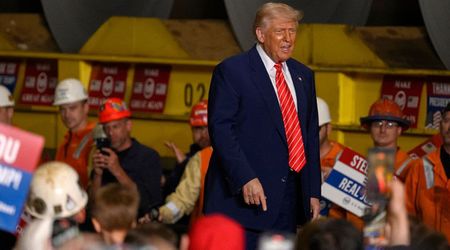How Businesses Are Employing Artificial Intelligence In 2023

Here Are 10 Widely Used AI Applications in Businesses

From chatbots improving customer interactions to predictive maintenance optimizing operations, AI is revolutionizing industries. Globally, businesses are using AI to streamline processes, cut costs, prevent errors, assist customers, and automate tasks. Deloitte's survey of 2,620 business leaders across 13 countries highlights prevalent AI applications in sectors like financial services and government. Here are the top 10 ways in which AI is reshaping enterprises:
1. Cloud Pricing Optimization

Organizations are turning to AI to minimize cloud costs and identify cost-effective solutions for running cloud applications. Airbnb employs AI to optimize pricing on AWS, manage capacity, build custom cost and usage data tools, and optimize storage and computing capacity. Dropbox utilizes AI to optimize cloud costs and operational expenditures, reducing its reliance on AWS and saving nearly $75 million. AI tools help optimize spending by identifying usage patterns, improving cost prediction, detecting anomalies, identifying saving opportunities, and revealing more cost-effective resources.
2. Voice Assistants, Chatbots, and Conversational AI

Conversational AI tools, including chatbots and voice assistants, have gained popularity for making technology more accessible, providing customer support, and easing the workload on IT support representatives. Estée Lauder, for instance, introduced a voice-enabled makeup assistant specifically designed to help visually impaired individuals in applying makeup. Similarly, companies like Pentagon Credit Union (PenFed) utilize chatbots and conversational AI to swiftly address common customer inquiries. AI algorithms can also categorize and prioritize incoming support tickets based on urgency and complexity. This ensures that customer inquiries are directed to human agents or resolved automatically by AI systems.
3. Reliability and Uptime Optimization

For web services and e-commerce, maintaining uptime and reliability is vital. AI algorithms can analyze historical data to predict potential failures before they occur. By identifying patterns and anomalies in equipment behavior, AI can schedule maintenance activities at optimal times, reducing downtime. It can perform routine maintenance tasks or apply predefined corrective actions without human intervention. Major organizations like Netflix, Uber, Facebook, Salesforce, and AirBnB rely on AI to monitor and ensure service availability. AI helps proactively identify issues, reducing crashes, and hacking, especially for companies providing digital services 24/7.
4. Predictive Maintenance

GE uses AI for predictive maintenance in aircraft engines, ensuring top-notch safety. Rolls Royce also uses AI to enhance jet engine efficiency and reduce carbon emissions through predictive maintenance. The District of Columbia Water and Sewer Authority uses predictive maintenance for water main break identification and monitoring collection system performance. DC Water's AI tool, Pipe Sleuth, reviews real-time CCTV footage to assess sewer pipe maintenance needs. These applications are improving efficiency and encouraging proactive problem-solving in various industries.
5. Customer Service Operations

The COVID-19 pandemic accelerated Lufthansa Group's digital transformation in response to overwhelmed call centers. Driven by customer expectations, many companies are integrating AI into customer service to deliver real-time support and consistent cross-channel experiences. Unilever, for example, utilizes the GPT API not only for minimizing food waste and auto-generating product listings but also to filter customer service emails. Moreover, AI-driven self-service portals allow customers to find answers to their queries independently. By integrating AI-powered search capabilities, businesses can enhance the accessibility and usability options.
6. Personalization

Whether it's Spotify suggesting new music, Amazon recommending products, or YouTube curating content, AI personalization uses data, customer engagement, deep learning, natural language processing, and machine learning. Companies like Nordstrom employs AI in its Nordstrom Analytical Platform (NAP) to understand customer activities, predict personalized experiences, and manage inventory, fulfillment, and order routing to the nearest store. This tool can help organizations increase customer engagement and conversion rates.
7. IT Operations Management

AIOps tools are becoming increasingly popular for IT operations management. These tools are designed to automate business processes by actively supporting systems and reacting to system problems in real-time, while providing analytics to developers. OpsRamp's report highlights their use for intelligent alerting (70%), root cause analysis (57%), anomaly and threat detection (52%), incident auto-remediation (50%), and capacity optimization (27%). Delta Airlines utilizes AIOps to create a digital simulation environment for global operations, especially during challenging weather. The platform analyzes operational data, helping Delta employees in making critical decisions before, during, and after disruptions. AIOps tools utilize machine learning to automate the management of applications
8. Process Automation

Automating routine processes not only reduces errors but also accelerates turnaround times, leading to enhanced efficiency and improved productivity across the organisation. Atlantic Health System streamlined prior authorizations during the COVID-19 surge, enhancing treatment speed and utilizing less medical staff. Johnson & Johnson, for example, combines RPA, ML, AI, and task mining to automate complex interdepartmental processes. Since 2015, AT&T uses process automation to avoid manual data entry.
9. Financial Reporting and Accounting

Many companies are using AI to revolutionize financial processes. Intuit, through its GenOS platform, manages over 730 million AI-driven consumer interactions and 58 billion machine learning predictions daily, streamlining tax, accounting, and cash flow tasks. AI algorithms can also detect patterns indicative of fraudulent activities. By continuously monitoring financial transactions, AI enhances overall risk management in accounting processes. Reportedly, PwC is investing $1 billion over three years to expand AI capabilities, employing it in various areas, from NLP to embodied AI.
10. Recruiting

Amazon is at the forefront of employing AI in the hiring process. The company uses AI to sift through resumes, match candidates with suitable roles, conduct initial online assessments, and provide recruiters with relevant data for candidate outreach. With organizations aiming to streamline the hiring process, reducing manual efforts and speeding up time-to-hire, this practice gaining momentum. Handling 1.8 million job applications yearly, Unilever has collaborated with Pymetrics to create an online platform to assess candidates through a video software. During the interview, candidates respond to various questions in 30 minutes time while the software analyzes their body language, facial expressions, and language through natural language processing and body language analysis. Once hired, companies like Schneider Electric use artificial intelligence to support employees' career growth, matching them with learning opportunities and new projects within the organization.





















